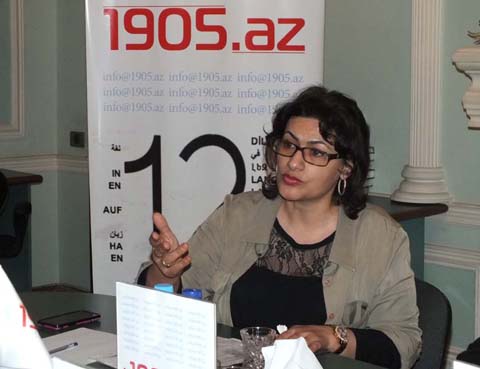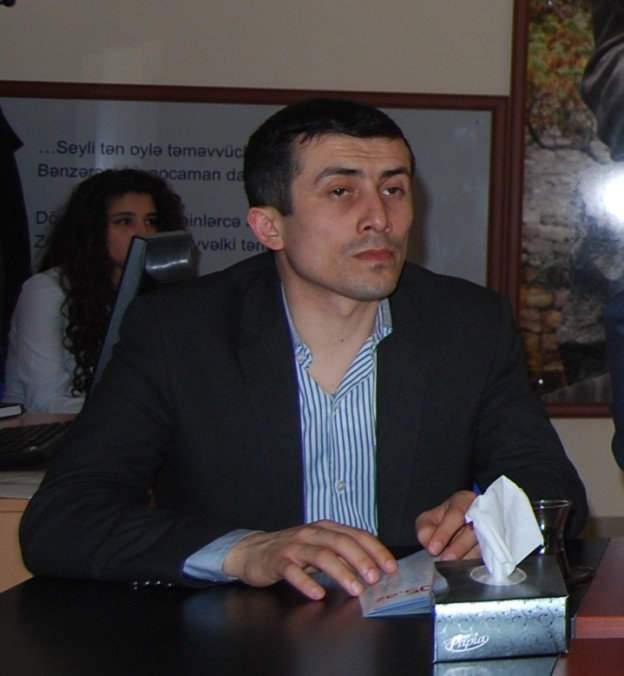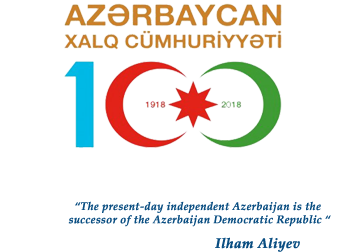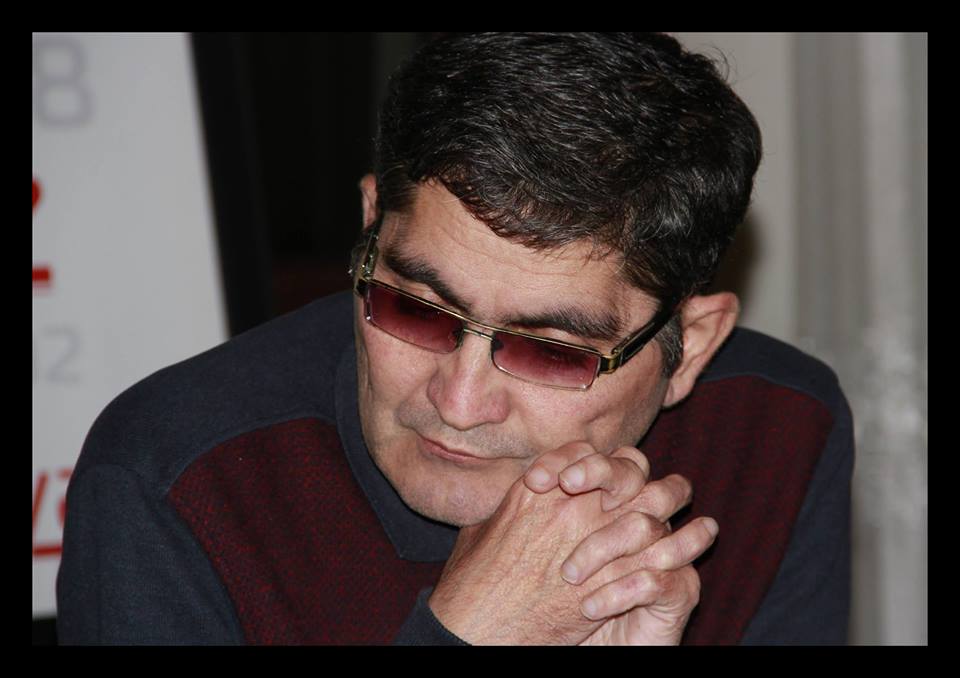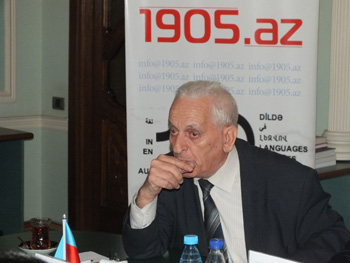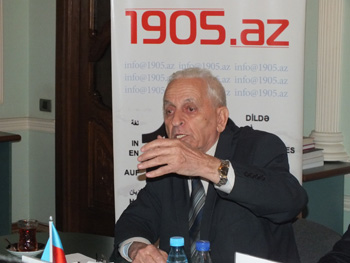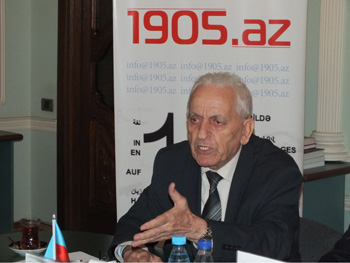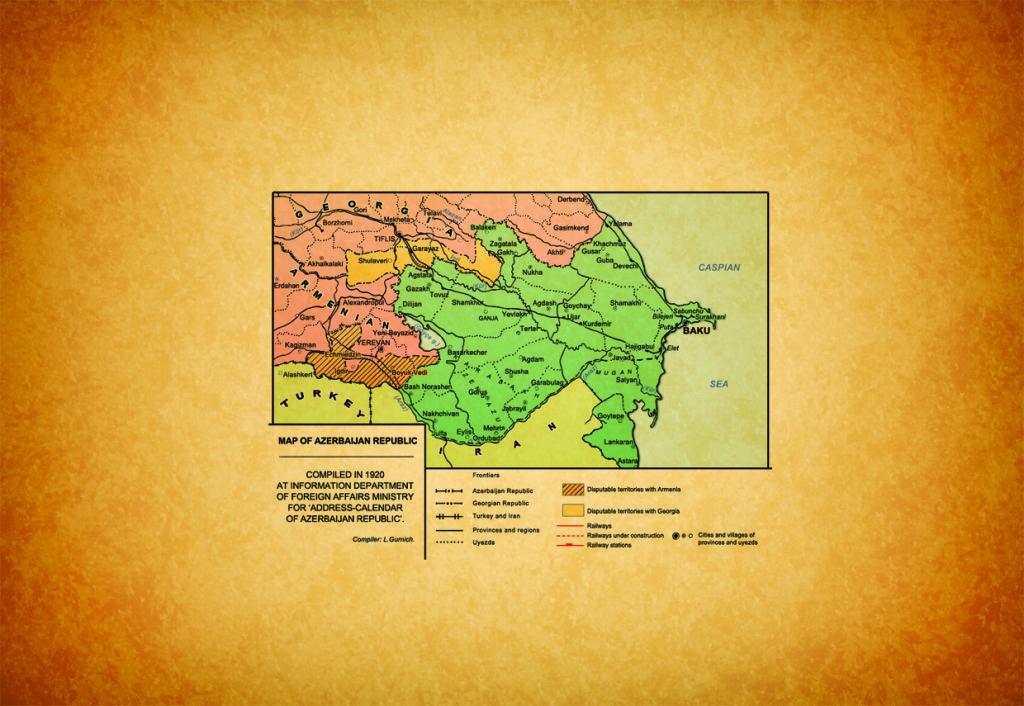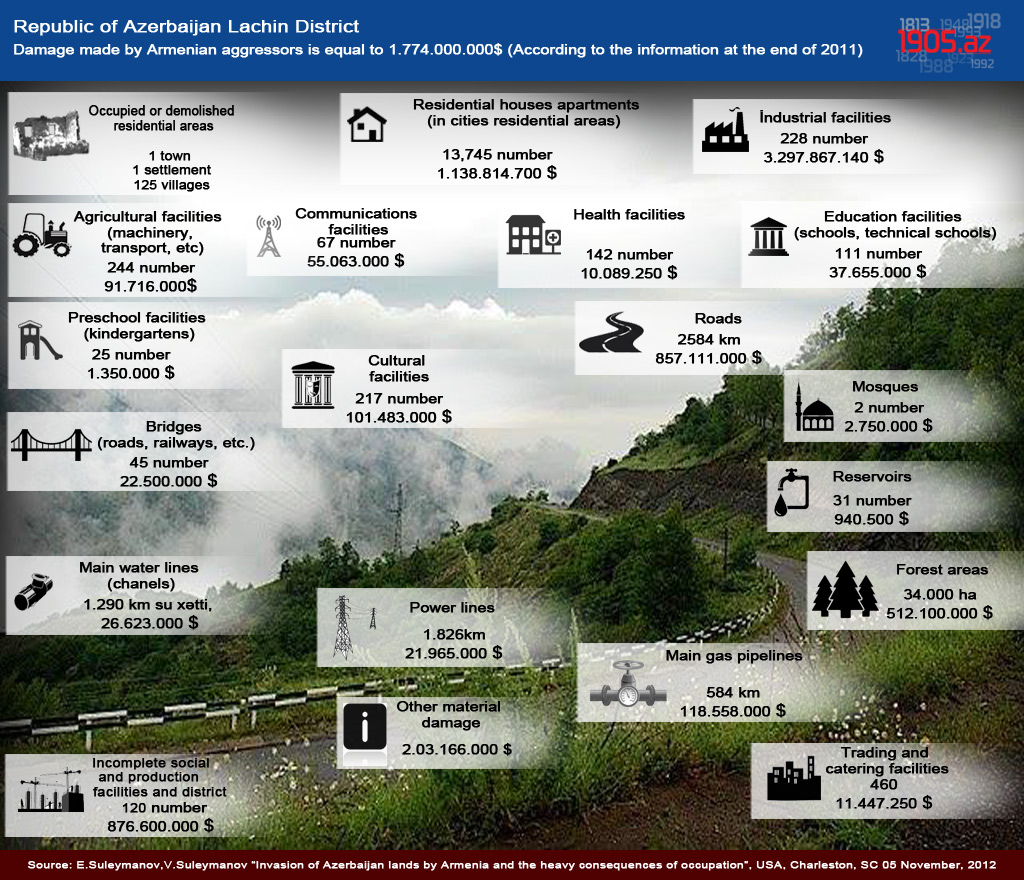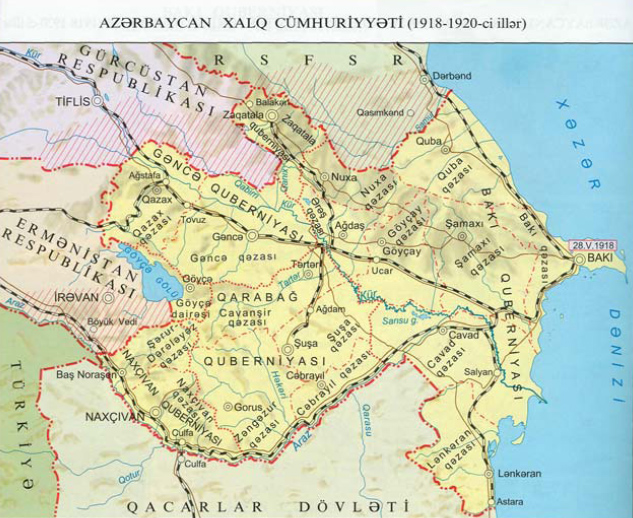
Despite the fact that the South Caucasus Sejm, which was established in Tbilisi on 23 February 1918 as the supreme authority of the region, was considering itself a part of Russia, it did not want to accept the Bolshevik leadership, and therefore refused to adhere to certain articles of the Brest-Litovsk Peace Treaty concerning the Caucasus, which was signed by Soviet Russia.
The Ottoman government became obliged to force the newly-stated South Caucasus Sejm to accept the provisions of the treaty concerning the Caucasus accepted also by Soviet Russia in Brest. Therefore, on 14 March 1918, Trabzon Peace Conference between the Ottoman Empire and the South Caucasus Sejm started. Starting from 14 February, the Ottoman troops, resuming military operations in the Caucasus front, liberated the Eastern Anatolian lands from Armenians equipped with Russian weapons. On 14 March – opening day of the Trabzon Conference, they reached to the previous borders between Turkey and Russia. At the Trabzon Conference, although the Ottoman government urged the South Caucasus Sejm to abide by the provisions of the Brest-Litovsk Treaty (withdrawal from Kars, Ardahan and Batumi sanjaks), month-long talks (14 March – 14 April 1918) ended in failure. The Sejm adopted a decision to stop the talks and take up arms against the Turkish demands. As a result of eight-day war (14-21 April 1918), the South Caucasus Sejm was defeated and obliged to accept demands of the Ottoman government. On 22 April 1918, the independence of the South Caucasus was declared and the Tiflis government stated its agreement to abide by the provisions of the BrestLitovsk Treaty. The fact that the Tiflis government took up arms against the Turkish demands and that the Ottoman Empire seized the territories (Kars, Ardahan and Batumi) which it was granted under the Brest-Litovsk Treaty by force of arms, caused Turkey’s position become further stricter at the Batumi Conference (11 May – 4 June 1918) between the sides.
On 11 May, at the first and last general meeting of Batumi Conference between the Ottoman Empire and the Transcaucasian Republic, Halil bey Menteshe, head of the Ottoman delegation, presented a draft treaty of 12 Articles to Akaki Chkhenkeli. According to draft treaty, Turkey demanded several territories and privileges in exchange for victims of military operations, in addition to the borders determined by the Brest-Litovsk Treaty. These demands included Ahiska and Akhalkalaki uyezds of Tiflis Governorate, Alexandropol (Gumru) and Surmeli uyezds of Irevan governorate, Sardarabad of Echmiadzin uyezd, south and south-west parts of Irevan uyezd – Kemerli (Gernibasar), Ulukhanli (Zengibasar) and Vedibasar regions, Sharur region of Sharur-Daralayaz uyezd, Nakhchivan uyezd excluding Ordubad, and even Alexandropol-Echmiadzin-Nakhchivan railroad. Moreover, within the duration of war against England, Turkey should be granted the right to use all railway network of the South Caucasus and at the same time, in case if the Ottoman Empire demanded, the Tiflis Government should give the institutions at the Baku port together with transport vehicles in the Caspian Sea belonging to the Caucasus government at the disposal of Ottoman government [21, sh. 1-2; 18, sh. 2-4; 17, sh. 75; 6; 7; 5].
In relation to these demands of Turkey, failure to achieve a common conclusion between the South Caucasus delegation and the Sejm made the collapse of Transcaucasian Federation unavoidable. At the meeting of 13 May, head of the South Caucasus delegation A. Chkhenkeli openly said to Halil Pasha that if the Ottoman government did not compromise and insisted on the territorial demands, the South Caucasian government and Sejm would be demolished. However, Halil bey resolutely stated that the Ottoman government was insistent in demands put forward at the first day of conference and there would be no compromise in this regard [20, sh. 46; 18, sh. 16-17, 22- 26]. Presence of the South Caucasus delegation in front of this position was simply of formalistic nature. Georgian, Azerbaijani and Armenian members of the delegation started separate talks with the Ottoman delegation members and sought to protect the interests of the nations they represent.
In spite of the Georgian-Armenian union, which had not accepted the demands of the Ottoman government at the Trabzon Conference regarding the Brest-Litovsk treaty, insisted on to take up arms against Turkish demands, and thus, given rise to war, it was Armenians that left in a very poorest and most miserable situation. As the Ottoman government gained the privileges, by way of war with the South Caucasus Sejm despite the fact that it was granted under Brest-Litovsk Treaty, at the Batumi Conference, it didn’t consider the provisions of Brest Treaty as the single basis for the talks, demanded several additional territories and privileges in addition to Kars, Ardahan, and Batumi provinces. Thus, if these demands, mainly directed at the Irevan Government, were realized, there would not left any territory for Armenians to establish a state in the Caucasus. Furthermore, as result of successful military operations of the Ottoman army in direction of Caucasus, number of Armenian refugees in the Caucasus exceeded 400 thousand [20, sh. 47; 18, sh. 17]. From the very beginning of World War, the Armenians, who committed crimes of genocide against the Turkish Muslims in the territories of Eastern Anatolia, got afraid of being punished in case if these territories to be liberated by the Turkish army and obliged to shelter in Caucasus. It should be noted that these homeless and hungry Armenian refugees caused great catastrophes to Azerbaijan as well. Thus, by committing the crimes of genocide against the Turkish Muslim population in the territories of Irevan and Elizabethpol governorates and by expelling them from their homelands, the Dashnaks relocated the Armenian refugees from Turkey in these Muslim villages.
Georgians took the side of Germany in front of Turkish demands. Armenians also tried to stand on Germany’s side. Although the Germans incited Armenians along with Georgians not to accept the Turkish demands in order to violate Turkey’s Caucasus policy, they were not interested in defending and taking care of Armenians, [20, sh. 39]. Therefore, on 13 May 1918, the Armenian representatives, being in a desperate situation, met with Halil bey and stated that “Dashnak Party, which together with Russia was fighting and carrying out hostile activities against Turkey so far, lost the struggle and decided to get agreed with Turkey and ask for mercy. Moreover, they asked for return of Armenian refugees who found shelter in the Caucasus to their homelands and for cancellation of Turkey’s demand over Alexandropol [20, sh. 47-48; 18, sh. 17- 19]. However, the response was not positive.
On 16 May, Halil bey received instructions from grand vizier Talat Pasha “to persuade Georgians in order to complete the work at the earliest” [20, sh. 57]. On the next day, Halil bey met with Mahammad Amin Rasulzade and Mahammad Hasan Hajinski and suggested to the Azerbaijani representatives to compromise some territories to Georgians in order to please them [20, sh. 79; 18, sh. 87]. On 18 May, Halil bey met with A. Chkhenkeli, recommended the Georgians not to follow the Armenians’ way and tried to explain that the establishment of Armenian state would not be favourable for Georgians [18, sh. 84-85]. After A. Chkhenkeli, Halil bey met with M.A. Rasulzade and M. H. Hajinski and said that it would be appropriate to prevent the establishment of Armenian-Georgian union against Azerbaijan and recommended that Azerbaijani representatives should influence the Georgians in this regard [18, sh. 85; 20, sh. 85].
In his meeting with A. Chkhenkeli on 20 May, Halil bey brought to his attention that most probably, he would receive a command from Istanbul on issuing an ultimatum to the South Caucasus delegation and noted that in case if Armenians did not accept the ultimatum, the Georgians would preserve the confederation with Muslims and accept the ultimatum [20, p. 89; 18, p. 45]. However, A. Chkhenkeli said that it was impossible to preserve the solidarity with Muslims and make Armenians displeased. He substantiated his view with the fact that indisputably, Armenians would create serious problems, as they spread all over the South Caucasus. [20, p. 89-90; 18, p. 45- 47].
On 20 May, after the meeting with A. Chkhenkeli, Halil bey received Armenian representatives just arrived from Tiflis. He brought to their attention that “Armenian aggression, which paved the way to break down negotiations by not accepting the Turkish demands at the Trabzon conference and which continues to expel the Muslim population out of their villages, put the discussions in such a situation”. He also stated that the Armenians should take the responsibility inflicted because of all of these [20, p. 90; 18, p. 47-48]. The Armenian representatives stated that they had not yet lost their hope for the Ottoman government’s mercy and having regard to the fact that they just arrived from Tiflis, asked for not to rush into issuing the ultimatum and to allocate time for discussions.
Although Halil bey demonstrated resolute position in front of the Armenian representatives, he had already come to a conclusion that it was important to establish an Armenian state. On the same day, after the meeting with Armenians, Halil bey met with M.A. Rasulzade and M.H. Hajinski and discussed this issue with the Azerbaijani representatives. The Azerbaijanirepresentatives told that the Armenians would insist and not accept the ultimatum and in this case, hundreds of thousands of armed and homeless Armenians would withdraw under the pressure of the Ottoman army, enter the Muslim villages and commit massacres, killings, and other provocations against the Turkish-Muslim population. As the Muslim population did not possess weapons and army unlike Georgians, it would be impossible to protect the people from Armenian aggression [20, p. 91; 18, p. 48-49]. Halil bey advised the Azerbaijani representatives to get on with Armenians peacefully and said that in this case, the Ottoman army would come immediately to the assistance of Muslims. In case if the Armenians obstructed, the army would execute this task by fighting. At the same time, he proposed Azerbaijan to display dedication and compromise some territories to Armenians on the opposite side of territories that would be subordinated to the Ottoman Empire [20, p. 91; 18, v. 49].
In accordance with the proposals and recommendations made by Halil bey at the meeting with M.A. Rasulzade and M.H. Hajinski on 20 May, on the next day, the Azerbaijani representatives met with Hovhannes Kajaznuni and Alexander Khatisian and discussed the formation of Armenian state. As the conclusion of discussions, the sides reached an agreement that Armenians would dismiss its claims over a part of Elizabethpol governorate, namely over Karabakh and in return the Azerbaijani side agreed to establish special Armenian canton within the borders of “Alexandropol governorate” in the South Caucasus [4, p. 47; 25, p. 57].
As one can see, on 21 May, the Azerbaijani side agreed to establish special Armenian canton within the borders of “Alexandropol governorate”in return for the dismissal of claims over Karabakh, but not to compromise Irevan to Armenians. At that time, the issue of establishment of Armenian state with Alexandropol as a political center was the topic of discussion. However, the issue of establishment of Armenian state with Irevan as a political center was brought on the agenda two days later – on 23 May.
Initiatives of Halil bey for formation of Muslim-Georgian federation without Armenians in order to prevent the collapse of the Transcaucasian Federation in front of the Turkish ultimatum were not accepted by Georgians. The proposal of Talat Pasha and Enver Pasha on “in case of an establishment of independent Georgian state, to establish a Muslim state on the other part of the Caucasus, not to allow Armenians to establish a state, and to divide the territories inhabited by Armenians between Muslims and Georgians” [20, p. 80-82; 9] was not accepted by both Georgians, Azerbaijanis and Halil bey himself. Halil bey, who had the say at the Batumi Conference, was considering important the establishment of an Armenian state along with the Georgian and Muslim states in case of the collapse of the South Caucasus Sejm and insisting on making this position be accepted by the grand vizier. However,the issue of where and in which territories to establish Armenian state was not considered yet. Following Kars, on 15 May, the Turks invaded Alexandropol and the issue of the establishment of the Armenian state around Irevan was brought on the agenda. Now, for the establishment of the Armenian state, the Turks either would have to transfer Alexandropol to the Armenians as a political center and withdraw from their demand regarding this city or to seize Irevan from the Muslims and transfer to the Armenians. The Ottoman government, not accepting the idea of giving up Alexandropol in the face of these two choices, preferred the second one. In a telegram sent to Halil bey on 23 May, Talat Pasha gave the following instruction on this issue: “Concerning the Armenians, they can also be formed in Irevan canton” [18, p. 69]. Halil bey very highly appreciated Talat Pasha’s consent after insisting requests for the establishment of the Armenian state as the “Irevan canton” and also put forward the idea of establishment of the Armenian state with Alexandropol as a political center and provision of certain territorial concessions to the Armenians by Azerbaijan. In his telegram to the grand vizier on 23 May, he wrote: “Concerning the Armenians, it is stated that they can also be formed in Irevan canton. I am pleased that you do not oppose an Armenian political presence within the Caucasus confederation. This is a political necessity, as there are a million and a half Armenians. They are such a nation with higher ideology and strong national conscience. If it will be impossible to destroy them to the last person, then the solution of the problem by relocating some of them in the territory that we demanded and keeping others in the Caucasus means that it will always bother and destroy the Caucasus and turn it into an anarchy epicentre deprived of security and order. The Caucasus will not be able to continue its existence due to the threats of the Cossacks from the north and of the Armenians from the south. The territories densely inhabited by Armenians in the Caucasus are the territories that we demand. Apart from these territories, the Armenians live in a very scattered manner among Muslims. We held broad discussions with the Muslim representatives on whether it is appropriate to compromise a territory for the formation of the Armenian political union on the opposite side of the territories we will obtain. Consequently, it appeared clear that it is impossible [20, p. 103-104; 18, p. 56]. Furthermore, Halil bey noted that all the Caucasian Muslims and Georgians, as well as Ahmed bey Agaoglu and Ali bey Huseynzade (they were sent by Enver Pasha from Istanbul and arrived in Batumi on 20 May – V.G.) are very concerned for the horrific outcome of the solution of Armenian question in a way that we desire.
Halil bey a bit moderated Turkey’s territorial demands and put forward a proposal on making certain territorial concessions to Georgians from the Akhalkalaki uyezd. However, this proposal was not positively welcomed by Enver Pasha. Therefore, he was avoiding to directly raise the issue of concession of Alexandropol to the Armenians before the government and preferring to indirectly exaggerate the issue. In his telegram to Talat Pasha dated 23 May 1918, he wrote that A. Agaoglu and A. Huseynzade would write their opinions on this issue to Enver Pasha [20, p. 104; 18, p. 56]. At the end of the telegram, Halil bey stressed the importance of establishing an Armenian state and that “an Armenian government, surrounded by Turk states and nations and gained its political ideology by their help, would not cause harms for a very long time”. He also considered the opinion of grand vizier on “to eradicate the roots of a boil and not to allow the establishment of Armenian state at all” impossible and dangerous for both Turkey and the Caucasus. He further wrote: “I do not even remember the issue that we thought very differently on. How it was right position that my body forced me to accept this task. Certainly, even my wish is contradictory, I will fulfil my duty. However, the signature for the necessity will be the most painful page of my life. The state affairs are resolved in accordance with fundamentals of the state. If I do not control my feelings on such an important issue, I would act contrary to my duty as a diplomat” [20, p. 105; 18, p. 57].
As it can be seen from the document, Halil bey also discussed with the Muslim representatives on whether it is appropriate to compromise a territory for the formation of the Armenian state on the opposite side of the territories that will be subordinated to the Ottoman Empire and consequently, it appeared clear that it is impossible. Therefore, on 22 May, under the recommendation of Halil bey, A. Huseynzade and A. Agaoglu sent a special request to Enver Pasha and a copy to Talat Pasha. A. Huseynzade and A. Agaoglu stressed not to allow the establishment of Armenian state and underlined the importance of establishing the Caucasus confederation dominated by the Muslims. They said that it would be beneficial for both the Ottoman Empire and the Caucasus [19, p. 19].
Regarding the problems that that would be inflicted by the Armenian question, in particular the Armenian migration towards Azerbaijan from the territories that would be subordinated to the Ottoman Empire, in case of collapse of the Transcaucasian Federation, the Azerbaijani representatives at the Batumi Conference were sharing the same view with A. Huseynzade and A. Agaoglu. However, with regard to the establishment of Armenian state, they demonstrated different position. Thus, unlike A. Huseynzade and A. Agaoglu, M.A. Rasulzade and M.H.Hajinski regularly discussed this issue with both the Ottoman delegation and the Armenian representatives. Consequently, it appeared clear that in case of collapse of the federation, the latter was not interested in to be united with the Azerbaijanis in a confederation and trying to establish their own state. At the same time, the Georgians also did not agree to establish a confederation with the Azerbaijanis but without the Armenians and suggested the importance of the establishment of Armenian state. Therefore, the Azerbaijani representatives were supporting the importance of establishing the Armenian state, whether it was in a small territory or not, in case of collapse of the federation and trying to establish this state with Alexandropol as a center, but not Irevan.
A day after the request of A. Huseynzade and A. Agaoglu to Enver Pasha and Talat Pasha, the Azerbaijani representatives at the Batumi Conference addressed a strong appeal to Enver Pasha on 23 May 1918 regarding the issue of establishment of the Armenian state. In the appeal, they justified their position with the fact that if only two – Georgian and Muslim cantons were created in the region instead of three – Georgian, Muslim and Armenian cantons, then the Armenians, living in the South Caucasus and in particular, in the territories demanded in the ultimatum to be subordinated to the Ottoman Empire, would massively flow to Azerbaijan. Actually, this would pave the way to even greater massacres, disasters and destructions in Azerbaijan. In order to prevent this, it would be appropriate to establish Armenians’ national state in a small area and to inhabit them there [19, p. 12, p. 1-4; 3, p. 4-11]. The appeal was signed by the representatives of Azerbaijan at the Batumi Conference – M. H. Hajinski, M. A. Rasulzade, Ahmed Bey (Can Baba), A. Safikurdski and A.Pepinov, as well as the members of the Muslim National Council and Sejm, M.Y. Jafarov, Minister of Justice F. X. Khoyski, Minister of Education N.Yusifbeyli, and X. Khasmammadov.
In his telegram to Talat pasha on 24 May, Halil bey wrote about his meetings and discussions with Georgian, Armenian and Azerbaijani representatives and noted: “As I said before, Georgians avoid to displease Armenians and therefore, they decided not to be in a confederation with the Muslims, even in case if the Armenians do not accept the ultimatum. If Armenians do not accept the ultimatum and decide to resist, I presume that Georgians will not take part in this resistance. However, they will leave the general government and Sejm, declare their independence within their own borders, and stand aside. The Armenians have decided not to sign the peace treaty within the mentioned proposal. There are divergence of opinions between them with regard to resistance or peace. Their chief committees are in favour of resistance, if it is impossible to get agreed. The Georgians will agree to leave Ahiska and the Armenians to withdraw from the border near Aras and its surrounding territories” [18, p. 65-66].
We note that when the Ottoman delegation departed for Batumi from Istanbul, it was decided, in accordance with the determined territorial demands to the Transcaucasian Republic, to demand only Ahiska and Surmeli uyezds as a war compensation in addition to the borders established by BrestLitovsk Peace Treaty [19, p. 12, p. 1-2; 18, p. 65-66]. However, on the following days, Enver Pasha put forward territorial claims in addition to Ahiska and Surmeli uyezds with regard to Akhalkalaki and Alexandropol, a part of Echmiedzin and Irevan uyezds, and Nakhchivan uyezd (excluding Ordubad) [21, p. 1-2; 7]. These demands were accepted by the government [18, p. 6]. In his telegram dated 24 May, Halil bey draw the attention of grand vizier to the fact that the peace agreement would be possible with the Georgians if Istanbul government cancelled its demands on Akhalkalakiuyezd or provided some concessions, and that agreement would also be possible with the Armenians if the government cancelled its demands on Alexandropol and other territories inhabited by Armenians. By doing so, he was trying to show that Georgians and Armenians agreed to accept the option on territorial demands to the South Caucasus determined in Istanbul on territorial claims against the South Caucasus. At the same time, after noting abovementioned, he also provided information in the same telegram about the address of Azerbaijani representatives dated 23 May 1918 to Enver Pasha and summarized the main provisions of that address [18, sh. 66-68]. Thus, Khalil bey showed that the representatives of Azerbaijan also agreed with the establishment of the Armenian state, they even justified their opinion with arguments and they were rightin this regard.
At the end of all day telegram communications between Halil bey and Talat Pasha on 24 May, the grand vizier instructed to issue a 24-hour ultimatum to the South Caucasus delegation, at the same time demonstrated his resolute position with regard to the establishment of Armenian state: “I absolutely do not favour the formation of Armenians as a government. Five years later, a small Armenian autonomy will turn intothe Armenian state with five million population, become Bulgaria of East and rule the entire Caucasus. All Armenians in Iran and the US will be gathered there, with receive every support from the English and the French people, and in the future, will act against us together with the Christian Georgians and very easily with the strangers. In this case, it would be good to eradicate the roots of a boil if possible. As this is not possible, it (Armenia – V.G.) should be formed very weak to live…” [20, sh. 113-115; 18, sh. 73, sh. 1-2].
To this position of the grand vizier, Halil bey said that in the establishment of Armenian state, “if the roots of a boil are not eradicated, the imperfect actions to be done would be very dangerous for the future”. However, when saying “to eradicate the roots of a boil”, he did not mean to prohibit the establishment of Armenian state like Talat Pasha said. On the contrary, Halil bey was drawing the attention to the fact that Irevancanton was a very small territory for the formation of weak Armenia, some of the Armenians would remain in the Caucasus and possess a state, and others would remain under the Ottoman rule and that consequently, this would lead to problems in the future. He was also suggesting to compromise the territories inhabited by Armenians, which Turkey demanded, and Alexandropol to Armenians, and thus supporting the ideafor establishing common state of the Caucasus and Ottoman Armenians [20, sh. 119; 18, sh. 61].
In this telegram, Halil bey was supporting the importance of determining the international situation of the Caucasus and therefore considering as an important task to establish the confederation consisting of three governments in the South Caucasus after the collapse of the Transcaucasian federation and to achieve the recognition of this confederation by the international community, particularly by Russia. He underlined that although the Ottoman government did not completely dictate its will to the enemy, achieving the recognition of independence of the Caucasus by Russia would be a great political success, recommended to think later about the nature of relations between the Caucasian governments and Turkey and advised not to rush into seizing more territories from the Caucasus or subordinating the entire region to the Ottoman Empire. Otherwise, it would cause deprivations to Istanbul government [20, p. 119-120; 18, p. 61-63].
In his next telegrams to the grand vizier, Halil bey noted that “Alexandropol uyezd was inhabited by totally 250 thousand Armenians and that it would be difficult to manage them after being incorporated to Turkey [20, p. 140; 16, p. 89]. However, in front of this harsh position of Enver Pasha, the Ottoman government insisted on the territorial demands it made and did not accept the idea of compromising any territory. In this case, Halil bey chose the third way, thus, to transfer a part of the territories belonging to Azerbaijanis to them in return for the territories that Turkey seized from the Armenians. This proposal was first put forward by Armenians. Following the failure of Trabzon conference, the Armenians, who were favouring to take arms against the Ottoman government’s demands, now were in a situation of desperation in front ofstricter Turkish demands. In front of harsh Turkish demands, the Armenian representatives offered as a solution to transfer some territories at least from the Muslims of the South Caucasus to the Armenians. In return for this, the hostility between the Armenians and the Muslims would be ended, and the Armenians would assume the responsibility for ensuring the security of the Muslim population in Baku [10, f. 3-26]. Halil bey considered this proposal acceptable and declared to the Armenian representatives that “the Ottoman government does not oppose the transfer of such a territory”. Armenian representatives promised that if such an agreement was reached and realized, the Armenians would send a delegation to Istanbul and state their loyalty to the Ottoman government [20, p. 129-130; 16, p. 82-83].
Halil bey then held talks with M.A. Rasulzade and M.H. Hajinski on the issue and could obtain the consent of the Azerbaijani representatives who were in need of Ottoman support [10, f. 3-26; 11]. The head of Ottoman delegation immediately informed Istanbul about this and said that as if the above-mentioned proposal was given to him by the Azerbaijani representatives and thus, particularly emphasized it. In his telegram to Talat Pasha on 26 May, he wrote that the ultimatum to the South Caucasus delegation was ready and would be issued now, but had some requests concerning the time of ultimatum: “… Muslim representatives met with me this morning. They are very concerned about the situation in Baku, as this city is in the hands of the Armenians. Therefore, they wanted to create a canton for the Armenians, which will provide them at least partially, on the opposite side of the territory that will be subordinated to us. Then the head of another Armenian party of utmost importance in Tbilisi today, outside of the Dashnaks’ control, came. He has also been seen to be in favour of the final. Referring to the instructions you gave us before, I stated that the Ottoman government does not oppose the establishment of such a canton. He asked for several days and requested that if the ultimatum is issued, let it be in at least three days. If such an agreement is reached and realized, the mentioned person (Armenian representative – V.G.) added that a delegation will be sent to Istanbul and will express the loyalty to the Higher Government and asked for an opportunity to extend favouring and kind appreciation to our side. Such manifestation on the Armenian side will create positive effect in Europe and the US”. [20, p. 129-130; 16, 82-83].
However, Enver Pasha strongly opposed this proposal. Enver Pasha also shared the same position as Talat Pasha and recommended to prevent the establishment of an Armenian state in the Caucasus, to divide the territories inhabited by Armenians between Muslims and Georgians, and to try to liberate Irevan and surrounding territories by Muslims, which territories were under control of Armenians and inhabited by Muslims. Enver Pasha stressed that if it was not possible, the establishment of Armenian state would be unavoidable. In this case, he considered very important to form the Armenian state very weakly for its quick collapse [11].
It should be noted that although the movement of Turkish troops towards the Caucasus was temporarily interrupted by the start of Batumi Conference, the deadlock in the negotiations and the systemic nature of the acts of genocide committed by Armenians against the Turkish-Muslims forced the army to continue its way. In his instructions to Vehib Pasha on 19 May 1918, Enver Pasha, ordered the army to move ahead and occupy the territories to the border frontier defining the Turkish territorial demands at the Batumi Conference [8]. Acting on this order, Vehib Pasha continued the movement of Turkish troops towards Irevan governorate. The Turkish troops occupied Surmeli on 20 May and Jalalogluon 24 May, then headed towards Karakilisa, and also entered Sardarabad. The Ottoman military leadership was attaching great importance on the occupation of strategically important Karakilisa. As a result of the occupation of Karakilisa, which was an important point on Alexandropol-Tiflis railway, on one hand, the Armenians would completely separate from the Georgians and on the other hand, connection would be established with the Muslims of Ganja [21, p. 14]. However, the Armenians strongly resisted against the occupation of Karakilisa. Despite this resistance, Karakilisa was captured by the Turkish troops on 28 May. During the two-day battleson 26-28 May for Karakilisa, 1,600 soldiers and several valuable officers of the Turkish army died [20, p. 139-140; 16, p. 89].
In his telegram to Talat Pasha on 28 May, Halil bey informed the grand vizier with the information provided by Vehib Pasha, namely, Armenians’ strong resistance and fight around Karakilisa. Then, he considered a wrong step the incorporation of Alexandropol and Akhalkalaki uyezds, where the majority of population were Armenians. He again put forward the idea of transferring these territories to Armenians and stated that comparing the Armenian state with Bulgaria was not honest [20, p. 139-140; 16, p. 89-90].
Vehib Pasha also shared the position of Enver Pasha and stated that the establishment of Armenian state would not allowed, and if it was not possible, he considered the establishment of Armenian state unavoidable. However, he was considering as the wrong step the agreements reached after Halil bey’s negotiations with Armenian and Muslim representatives on 26 May with regard to some territorial concessions from Azerbaijanis to Armenians in return for the commitment on “the hostility between the Armenians and the Muslims would be ended, and the Armenians would assume the responsibility for ensuring the security of the Muslim population in Baku and resolutely opposing those agreements. Vehib Pasha also recommended the of Azerbaijani representatives not to agree in any case to give the Armenians an inch of territory belonging to Azerbaijan. [10, f. 3-26].
Although Vehib Pasha, acting on the directives of Enver Pasha, opposed the territorial concessions to the Armenians from the Azerbaijani territories in return for any commitments, he was considering it important to grant Armenians the presence and some compromises at least in front of the international community. In his response dated 29 May to the telegram of Enver Pasha dated 27 May 1918 [11] on “not to allow the establishment of Armenian state”, he stated that “they were trying to follow the orders”, but also noted that “we cannot make the Armenians completely non-existent. In any case, it is necessary and we are obliged to grant them existence” [10, f. 3-26]. Vehib Pasha highlighted that if the Armenian state was established, the attention would be given to its essence that would not threaten the lives of Muslims in Turkey and the Caucasus in the future and it would be done as the main purpose.
In the end of the communications between Batumi and Istanbul, Enver Pasha understood that the plan “to eradicate the roots of a boil” on the establishment of Armenian state would not be realized and thus, instructed to surround the territories that would be given to the Armenians like an island bordering the territories of Turkey and Azerbaijan. In his instruction to Batumi dated 29 May 1918, he stressed the importance of having the Ottoman Empire border directly with the government being Ganja as a capital – Azerbaijan [12]. According to the position of Enver Pasha, the Ottoman Empire would have to have direct border with Azerbaijan in the north of Karakilisa. In this case, the Ottoman Empire would have direct border with Nakhchivan on one hand and with Azerbaijan from the north part of Karakilisa on the other hand. Armenia would lose direct connection with Georgia and remain as an island between the Ottoman Empire and Azerbaijan.
In those days, intensive discussions were held between Batumi and Istanbul on the establishment of Armenian state in the event of collapse of the Transcaucasian Federation and thus, very important events took place in Tiflis. On 26 May 1918, the Georgians left the Transcaucasian Federation and declared the independence of Georgia. On the next day, representatives of the Muslim faction met and declared themselves the Azerbaijan National Council. The Council declared the independence of Azerbaijan on 28 May. The Georgians and Azerbaijanis declared their independence within concrete territorial borders. However, the Armenians did not have such a concrete territory under the existing conditions, had to wait for the outcome of the Batumi negotiations.
On the same day at night when the Georgians declared their independence on 26 May 1918, the Armenian representatives of the Sejm held a meeting and accused the Georgians of betraying the Armenians. Esers and neutral member opposed the declaration of independence, referring to the harsh battles on the Turkish-Armenian front and that the Turks would be a threat to the declared independence. There arose discord in the Dashnaksutyun party on the issue of the declaration of independence in existing situation. While the Chairperson of Mejlis Avetis Aharonyan, Ruben Ter-Minasyan, and Artashes Babalian strongly rejected the idea of independence, Simon Vratziyan and Khachatur Karchikyan opposed them. Therefore, this meeting could not achieve final decision on whether to declare independence and ended with a decision to discuss the issue later [24, p. 190].
After this general meeting, the leaders of the Dashnaksutyun party contacted H. Kajaznuni and A. Khatisian, the Armenian representatives in Batumi, and it appeared clear that the Ottoman government had agreed to establish an Armenian canton within Irevan borders. Right after this, the Dashnak leaders held their next meeting on that night, 26 May. As an outcome of the discussions, it was decided that Armenian National Assembly would admit the government functions and the governance center would be transferred from Tiflis to Irevan. H. Kajaznuni and A. Khatisian returned from Batumi on 27 May and widely informed the Armenian National Assembly about the negotiations with the Ottoman government. They particularly stressed that whatever it would cost, the only way for the freedom of Armenians was to declare the independence and achieve peace with Turkey.
At midnight on 28 May, the Armenian National Council adopted a decision to declare Armenia an independent republic, to state itself as the supreme authority of the republic, and to send a delegation to Batumi on behalf of independent Armenia [26, p. 29]. However, the Armenian National Council did not execute this decision on declaring Armenia’s independence. On the next day, 29 May, a joint meeting was held between the Dashnaksutyun Party Bureau, Party’s Tiflis Central Committee of the party, Dashnak members of former Sejm and members of the Armenian National Assembly. A decision was adopted “On declaring a Republic of Armenia that will be temporarily governed by a coalition”. However, the independence was not yet declared, as the first of all the territorial borders of the Armenian state would have to be determined. Therefore, immediately after the 29 May meeting, the Armenian delegation consisting of A. Khatisian, H. Kajaznuni and M. Papacanov went off in a hurry to Batumi in order to resume the negotiations with Turkey. This delegation led by A. Khatisian was granted extraordinary powers to continue the negotiations with Turkey and achieve the peace [24, p. 191]. Arriving in Batumi on 30 May, at about 4-5 early in the morning, the Armenian representatives immediately launched negotiations with Halil bey [20, p. 146; 18, sh. 94].
It should be noted before the return of the Armenian representatives from Tbilisi to Batumi, all attempts of Halil bey for compromising Alexandropol to Armenians ended in vain. Like the resistance of Enver Pasha, Talat Pasha also insisted on his position not to compromise Alexandropol to the Armenians. Thus, Halil bey took a resolute decision on the establishment of an Armenian canton with Irevan as a political center and informed M. A. Rasulzade and M. H. Hajinski on the issue. Following this, at the recommendation of the Azerbaijani representatives in Batumi and in order to supplement the formal procedures, the issue of concession of Irevan to Armenia was discussed at the meeting of Azerbaijan National Council on 29 May 1918, with Hasan bey Agayev as the Chair and Mustafa Mahmudov as the Secretary. Prime Minister F. X. Khoyski provided information about the negotiations between the members of the Council and members of the Armenian National Council regarding the border between Armenia and Azerbaijan. In his report, Fatali khan stated that for the establishment of the political center of the Armenians, it was unavoidable to compromise Irevan to Armenia after the seizure of Alexandropol by the Turks. Taking the floor on the issue, Khalil bey Khasmammadov, Mammad Yusif Jafarov, Akbar agha Sheikhulislamov and Mahammad Maharramov noted that the concession of Irevan to Armenians is the necessity of history, but a bitter truth for us [1, sh. 51]. As a result of the voting, 16 out of the 20 members of the National Council attending the meeting voted in favor of “Irevan’s concession to the Armenians” and one member voted against, with three abstentions [1, sh. 51]. As the Azerbaijan National Council adopted a decision on compromising Irevan to Armenians, F.X Khoyski, on the same day, sent a telegram to Batumi – to the Minister of Foreign Affairs of the Azerbaijan Democratic Republic about the decision of the National Council. He wrote: “We ended all disputes with the Armenians. Now it is their turn to accept the ultimatum and end the war. We compromised Irevan.” [2, sh. 1-2]. Thus, the issue of concession of Irevan to Armenia was legally solved in favour of the Armenians.
After the Armenian delegation returned to Batumi, on 30 May, early in the morning, the talks launched in OttomanArmenian bilateral format and then in Ottoman-ArmenianAzerbaijani trilateral format. During these very short and ultimatum-like talks, Halil bey rejected the Armenians’ demands over Alexandropol district and Akhalkalaki uyezd. However, due to the resistance of Armenian representatives, Halil bey made some territorial concessions in favor of the Armenians. Despite the warnings of Enver Pasha, he said that some eastern territories of the Alexandropol uyezd would be compromised to Armenians and highlighted that it was Turkey’s blessing to the Armenians for “the beginning of the establishment of friendly relations” between the parties. Head of the Armenian delegation A. Khatisian stated that the territories allocated for the establishment of the Armenian state were not enough to meet the very needs of the people of Armenia and complained about the size of the territory. At the same time, highlighting the international character of “Armenian question”, noted that the problem could not be solved in this way and further said that the borders proposed by Turkey would pave the way to permanent hostilities between the two nations [24, p. 195- 196]. In his response to A. Khatisian, Vehib Pasha said that they (Turkey) could resettle all the Muslims within Armenia to Turkey with a great pleasure in order to provide more territories for Armenians [22, p. 133]. He also noted that he knew the Armenian question as an international problem and particularly emphasized that the Ottoman government would recognize the independence of the Armenian state. He further emphasized that there is no need to talk about the permanent hostilities between the Turkish and Armenian peoples, as all nations begin their existence in small fields and then develop gradually. Vehib Pasha also stressed that there would not be such a suitable time for establishing Turkish-Armenian friendly relations. He called on the Armenians to take advantage of this chance [24, p. 196]. Indeed, the Armenians had no choice but to accept the conditions specified by the Turks. The situation on the Turkish-Armenian front, as well as the internal problems of the Armenians dictated to achieve the peace as soon as possible. Consequently, the Ottoman delegation compromised the eastern territories of the Alexandropol uyezd, such as Agbulag, Hamamli, Hanvali and Karkilisa to the Armenians, which were the part of territorial demands of Turkey to Batumi Conference. 1600 km2 west part of total 3612,9 m2 Alexandropol uyezd, including the same-name city as the center of the uyezd transferred to Turkey and the rest of the territory remained in Armenians [17, sh. 68, 75].
Later, during the trilateral format negotiations between the Ottoman Empire, Armenia, and Azerbaijan, discussions were held on the Armenian state border with Azerbaijan and consequently, the Goycha Lake was determined as the Armenian-Azerbaijani border. Hereby, a final agreement was reached on the establishment of the Armenian canton between the new borders of the Ottoman Empire and Goycha Lake [20, sh. 146, 150-151; 18, sh. 94, 96, 98, 100]. In a telegram sent to the grand vizier at 5:45 on 30 May, Halil bey wrote about agreements reached in the course of recent Ottoman-ArmenianAzerbaijani negotiations in Batumi: “Just now the Armenian representatives arrived… Under our permission, Armenians and Muslims got agreed on canton that would be allocated to Armenians. Armenians were satisfied with the narrow and mountainous area between Goycha Lake and our new border” [20, sh. 146; 18, sh. 94].
In accordance with the agreement, the Armenian state possessed totally 9000 km2 area between the Goycha Lake and the new borders of the Ottoman Empire [17, sh. 63, 69-71] and the following areas: New Bayazid uyezd (excluding southeastern part of Basarkecher), Irevan uyezd (excluding Kemerli, Ulukhanli and Vedibasar regions), Echmiadzin uyezd (excluding Sardarabad) and Agbulag, Hamamli, Hanvali and Karakilisa regions of Alexandropol uyezd [17, sh. 68, 69, 75; 15, sh. 14-16, 22-25]. The German ambassador in Istanbul Bernstorf spoke with irony about this small area determined by the Ottoman government for Armenia under the Batumi Treaty: “Turkey left only Goycha Lake for Armenians. However, there are no space to get out of the lake and dry” [27]. There were totally 321 thousand people in the territory given to the Armenians. 230 thousand were Armenians, 80 thousand Turkish-Muslims, 5 thousand Yezidis, and 6 thousand the representatives of other nations [17, sh. 63, 69-71]. Moreover, there were more than 400 thousand Armenians in these areas fled from the Ottoman territories [20, sh. 47; 18, sh. 17].
On 31 May, discussions between the Ottoman delegation and the Armenians on the priority matters were completed [20, sh. 150-151; 18, sh. 98, 100]. On the evening of 1 June, Vehib Pasha and Armenian representatives began to draw the OttomanArmenian borderline on the map. Alagoz Mountain located to south of Alexandropol uyezd, Alikochan territory of Echmiadzin uyezd, and the Upper Karabakhs territory of Irevan uyezd from the territorial claims made by the Ottoman government at the Batumi Conference were compromised to Armenia [17, sh. 75]. Despite it was already midnight, the discussions was ongoing. Finally, at the end of all discussions, over the night June 1-2, at 2 am, the precise details of the Ottoman-Armenian borderline and the draft agreement, which would be signed by and between the Ottoman Empire and Armenia, were approved by the signature of the parties [18, sh. 105; 20, sh. 157].
In return for the concession of Irevan and the establishment of Armenian state in Irevan region, the Republic of Armenia undertook the following commitments before Turkey and Azerbaijan: 1) the Armenians should eliminate the hostility against Turkish-Muslims, withdraw Armenian military troops from Baku, and secure the safety of Muslim population in Baku in corporation with Shaumian; 2) the ongoing mass killings by the Armenian armed units against the Muslims in the Azerbaijani uyezds should be stopped; 3) the Armenian government should ensure the rights of Muslims in Irevan and other parts of the newly-established Armenian state, to exercise religion, to study, culture, politics, and to study in their mother tongue; 4) Armenians should give up their territorial claims over a part of the Elizabethpol governorate, namely over Karabakh. All these commitments were set forth in the agreement, in the protocol, in the Ottoman-Armenian “Peace and Friendship” Treaty dated 4 June 1918, and in additional agreements and Gyumri protocols [10, f. 3-26; 20, sh. 129-130; 16, sh. 82-83; 15, sh. 17, 20, 26, 30; 14, sh. 2-6, 8-15; 2, sh. 47; 25, sh. 57]. It should be noted that the Armenians did not honour any of these commitments after achieving their goals.
After finishing the negotiations with the Georgian and Azerbaijani sides, on 4 June 1918, early in the morning, the Ottoman delegation signed the Batumi Treaties with the representatives of Azerbaijan, Georgia and Armenia. Although the Ottoman-Armenian Treaty was signed on 4 June 1918, as we mentioned above, main Turkish-Armenian discussions were held on 30 May and at that time the establishment of Armenian state and area of its territories were determined. On 30 May, Armenian representatives in Batumi also informed Tiflis – the Armenian National Council about all these agreements. On same day – 30 May 1918, the Armenian National Assembly issued a special declaration and declared Armenia’s independence. Unlike the declarations of independence of the Georgian and Azerbaijani national councils, this declaration did not envisage detailed provisions on the main directions of the state. The declaration read: “In this new political situation that emerged as a result of the collapse of Transcaucasia political union and the declarations of independence by Georgia and Azerbaijan, the Armenian National Council declares itself the supreme authority of the Armenian provinces and Armenians. Due to some serious conditions, the establishment of the Armenian national government was postponed for several days. During these days, Milli Mejlis assumes all the powers of the government regarding political affairs and the governance of Armenian provinces” [24, p. 191].
Armenia was declared an independent state with this declaration. However, one of the noteworthy point is that in spite of the final agreement reached in the Ottoman-ArmenianAzerbaijani negotiations held in Batumi at that time regarding the establishment of the Armenian state and its territories, in this declaration, the Armenian National Assembly declared itself as the supreme authority of “Armenian provinces and Armenians”, without specifying the territories and borders of the state. This showed that the Armenian National Assembly was not satisfied with the territories determined in Batumi and would begin to fight for expanding the borders of the Armenian state at the next stage. As H. Kajaznuni, who was tasked with forming coalition government, was in Batumi, the Armenian national government was not established immediately after the declaration of independence. Therefore, this issue was postponed until his return. Shortly after his return from Batumi, H. Kajaznuni formed the first coalition government on 30 June 1918. The Armenian government and the Armenian National Assembly left Tbilisi on 17 July 1918 and arrived in Irevan on 19 July after two-day difficult journey [24, p. 210].
Thus, the Ottoman delegation at the Batumi conference led by Halil bey compromised some territories in favor of Armenians at the expense of Azerbaijani territories and confirmed the establishment of the Armenian state with the Irevan as a center, under the control of Turkey, in 9,000 km2 area, covering some parts of Irevan, Echmiadzin, and Alexandropol uyezds, as remaining parts of these uyezds transferred to Ottoman Empire, and New Bayazid uyezd (excluding Basarkecher). Turkey was the first state de facto recognized it. Although it is contradictory, it was Turkey that established a state for Armenians who fought against it, but not the countries such as Russia, England and France, which used Armenians as a tool against the Ottoman Empire starting from the early 19th century. It was not a coincidence that the head of the Armenian delegation at the Batumi Conference A. Khatisian acknowledged that the Armenian state in the Caucasus was established merely with the help of Turkey and noted that “Turkey played a role of obstetrician in the birth of Armenia”. Hereby, the Ottoman government, on the one hand, eliminated the “reproach” against it on the “Armenian question” in the international arena. On the other hand, it got rid of the problem by establishing the Armenian state in the South Caucasus, which some countries such as England, France and Russia wanted it to be in Eastern Anatolia.
References:
- Azərbaycan Respublikası Dövlət Arxivi (ARDA), f. 970, siy. 1, iş 1.
- ARDA, f. 970, siy. 1, iş 4.
- ARDA, f. 970, siy. 1, iş 7.
- Azərbaycan Respublikası Prezidentinin İşlər İdarəsinin Siyasi Sənədlər Arxivi (ARPİİSSA), f. 276, siy. 9, iş 1.
- Türkiye Cumhuriyeti Genelkurmay Askeri Tarih ve Stratejik Etüd Dairesi Başkanlığı Arşivi (ATASE), BDH, K. 2917, D. 493, F. 1-136, 1-137.
- ATASE, BDH, K. 2919, D. 499, F. 3-1.
- ATASE, BDH, K. 2919, D. 499, F. 3-2.
- ATASE, BDH, K. 2919, D. 499, F. 3-11.
- ATASE, BDH, K. 2919, D. 499, F. 3-21.
- ATASE, BDH, K. 2919, D. 499, F. 3-26:3-29.
- ATASE, BDH, K. 2919, D. 499, F. 3-31.
- ATASE, BDH, K. 2919, D. 499, F. 3-32.
- ATASE, BDH, K. 2930, D. 553, F. 4.
- Türkiye Cumhuriyeti Cumhurbaşkanlığı Devlet Arşivleri Başkanlığı (BOA), HR.HMŞ.İŞO, no. 124/19.
- BOA, HR.HMŞ.İŞO, no. 124/20.
- BOA, HR.SYS, no. 2371/6.
- BOA, HR.SYS, no. 2372/1.
- BOA, HR.SYS, no. 2372/3.
- BOA, HR.SYS, no. 2398/4.
- BOA, HR.SYS, no. 2398/5.
- BOA, HR.SYS, no. 2399/1.
- Ermeni Komitelerinin İhtilal Hareketleri ve Besledikleri Emeller. Hazırlayan: İsmetParmaksızoğlu. Ankara: DSİ Basım ve Foto-Film İşletme Müdürlüğü, 1981.
- Menteşe H. Osmanlı Mebusan Meclisi Reisi Halil Menteşe’nin Anıları. Hazırlayan: İsmail Arar. İstanbul: Hürriyet Vakfı Yayınları, 1986.
- Hovannisian R.G. Armenia on the Road to İndependence 1918. Los Angeles: Berkeley, 1967.
- Авалов З. Независимость Грузии в международной политике 1918-1921 гг. Воспоминания. Очерки. Париж: 1924.
- Качазнуни Ов. Дашнакцутюну больше ничего делать! Баку: Элм, 1990.
- Сокращенный перевод с армянского языка монографии Джона Киракосяна “Младотурки перед судом истории”. Ереван: Издательство “Айастан”, 1986 г. – http:// armenianhouse.org/kirakosyan/youngturks-ru/chapter07.html
Vasif Gafarov
Senior scientific researcher of ANAS Institute of History named
after Abbasgulu Agha Bakikhanov
Doctor of Philosophy in History, Associate Professor
“EXPOSURE OF ARMENIA’S OCCUPATION POLICY (COMPILATION OF ARTICLES)”. BAKU – 2019, p.231-260

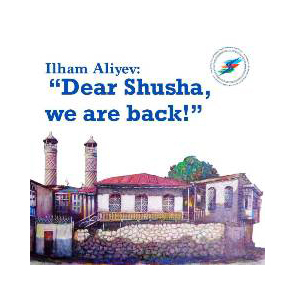

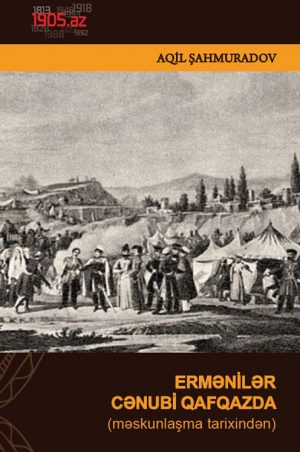





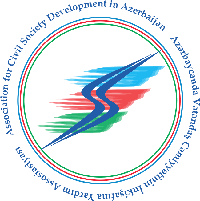
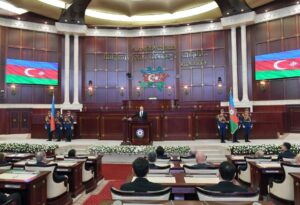 Inauguration ceremony of President of Azerbaijan Ilham Aliyev was held
Inauguration ceremony of President of Azerbaijan Ilham Aliyev was held Ilham Aliyev wins presidential election with 92.05 percent of votes VIDEO
Ilham Aliyev wins presidential election with 92.05 percent of votes VIDEO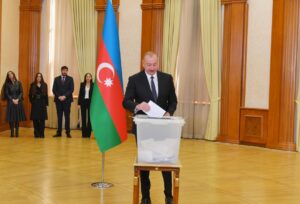 President Ilham Aliyev, First Lady Mehriban Aliyeva and family members voted in Khankendi VIDEO
President Ilham Aliyev, First Lady Mehriban Aliyeva and family members voted in Khankendi VIDEO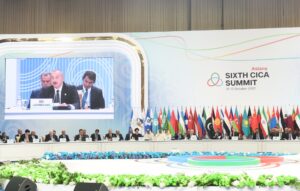 Plenary session of 6th Summit of Conference on Interaction and Confidence Building Measures in Asia gets underway in Astana. President Ilham Aliyev attends the plenary session VIDEO
Plenary session of 6th Summit of Conference on Interaction and Confidence Building Measures in Asia gets underway in Astana. President Ilham Aliyev attends the plenary session VIDEO President Ilham Aliyev was interviewed by Azerbaijani TV channels in Prague VIDEO
President Ilham Aliyev was interviewed by Azerbaijani TV channels in Prague VIDEO



